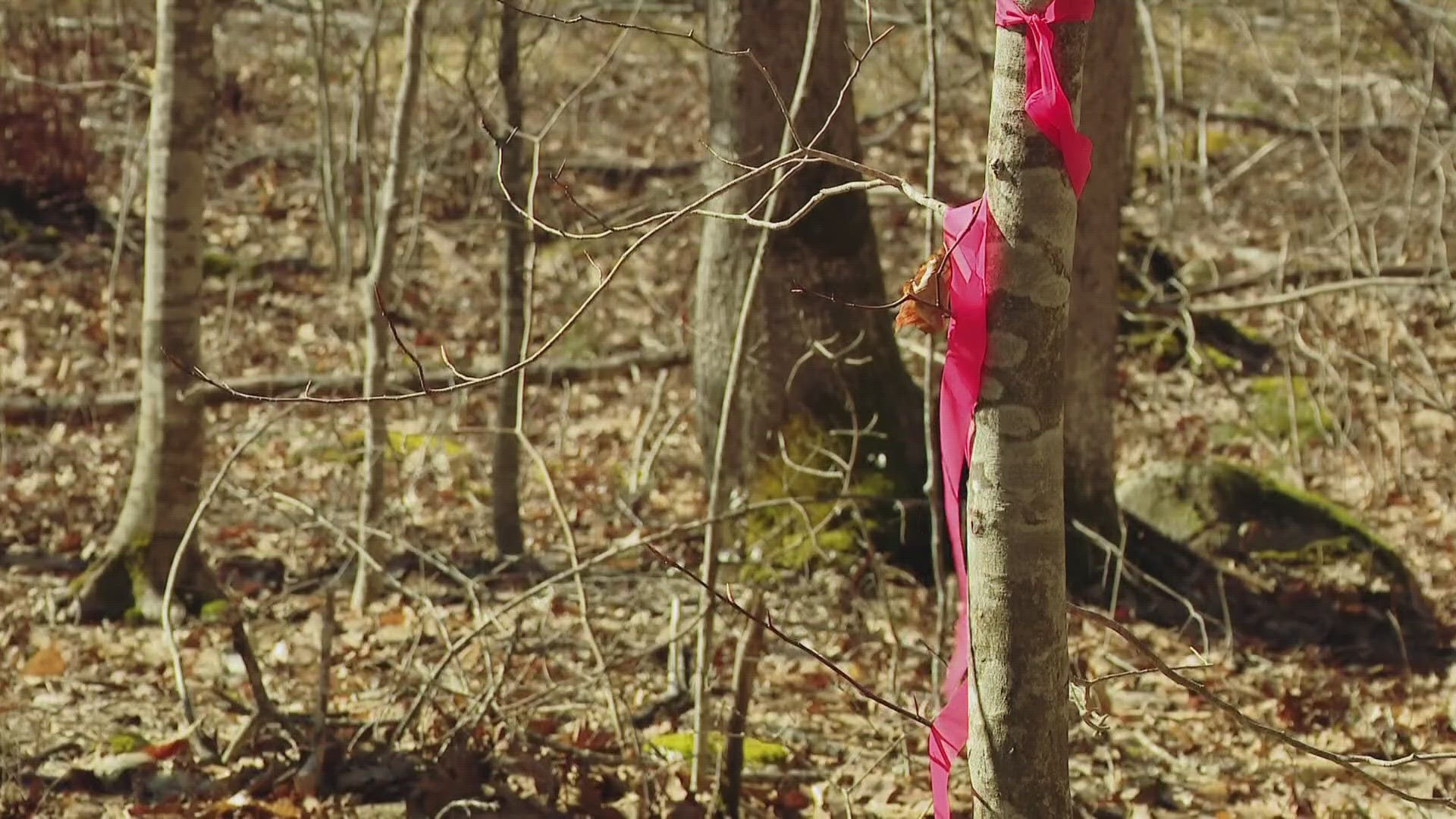RAYMOND, Maine — Solar farms are springing up all over Maine to help bolster our power grid, but a proposed solar project in Raymond is sparking a lot of opposition.
More than two dozen people who live on Pulpit Rock Road said the project doesn't belong in a residential neighborhood.
The developer said the proposal is above board and steps have been taken to address the homeowner's concerns.
Homeowners living next to the proposed solar farm said they would take legal action, if needed, to prevent the project from happening and its potential impacts on the environment and their property values.
This quiet neighborhood on the shores of Thomas Pond is known for its babbling brooks, wetlands, and wooded areas, which are also home to an array of wildlife.
But residents who live along Pulpit Rock Road, just off Route 302, said tranquility has been disrupted. It all started last summer after multiple trees were cleared on a hilly section of this 30-acre privately owned property, directly behind Laurie and Bob Wallace's home.
"They started marking trees in an inner circle past the property line, but we had no idea of what was going on," Laurie Wallace explained.
Last fall, Laurie along with two dozen other property owners found out about plans to build a commercial solar farm with a 5,000-panel solar array on about 7 acres. The property is being leased by Allen Solar LLC.
In December, homeowners took their concerns to the town's planning board about the potential impact on their well water, wildlife habitats, and other ecosystems. The proposed site, which the Department of Environmental Protection must approve, is filled with vernal pools, wetlands, and streams that run directly into Thomas Pond.
"By putting anything back here that requires so much shoveling of the soil, the vernal pools will be reshaped, and the wetlands will be impacted," Laurie said with concern.
The 500-acre pond watershed feeds directly into Sebago Lake, the source of drinking water for the Greater Portland region. Bob Chapin lives on Pulpit Rock Road and is the President of the Thomas Pond Improvement Association, which represents 400 homeowners.
"What agents are they going to be using to clean those panels? Because most of the cleaners have phosphorus as a cleaning agent and our concern is it will run off this mountain and into the lake, Chapin said.
David Fowler, the solar farm's developer, said the proposal complies with the town's current solar ordinance.
"It's less impact on the environment than even one single home would be on that particular property," Fowler said in a phone interview with NEWS CENTER Maine.
Fowler said there would be a 70-foot setback from abutting properties, a fence, vegetation buffers, and a fire suppression system.
"A piped hydrant inside the fence as well as outside the fence so they will be able to pump water..wherever they need," Fowler explained.
Laurie and other neighbors support alternative energy sources, including solar — but not next to a residential neighborhood. They have also hired an attorney to draft changes to the town's current ordinance.
Property owners will go before the Raymond Select Board, on Tuesday evening to push for a moratorium to slow the project down. They also hope to get the issue before voters, possibly in a special election.
In a statement, David Madore, spokesman for the DEP told NEWS CENTER Maine:
"The proposal requires a full permit under the stormwater management law because the proposal would create more than 20,000 square feet of new impervious surface in the direct watershed of Thomas Pond, which is a lake most at risk from new development under the Department's Chapter 502 rules. This project must meet the Department's Basic erosion and sediment control, General treatment for water quality, and phosphorus standards," Madore said.
"The Permit By Rule notification submitted for this project is for activities in, on, or over significant vernal pool habitat. Significant vernal pool habitat consists of a vernal pool depression and a portion of the critical terrestrial habitat within a 250-foot radius of the spring or fall high water mark of the depression," he said.
" If an applicant does not submit all of the required material, or demonstrate that a project would meet all of the applicable standards, then the Permit By Rule would be marked deficient and the proposed activities would not be allowed. DEP has a 90-day time frame to review both applications," Madore concluded.

